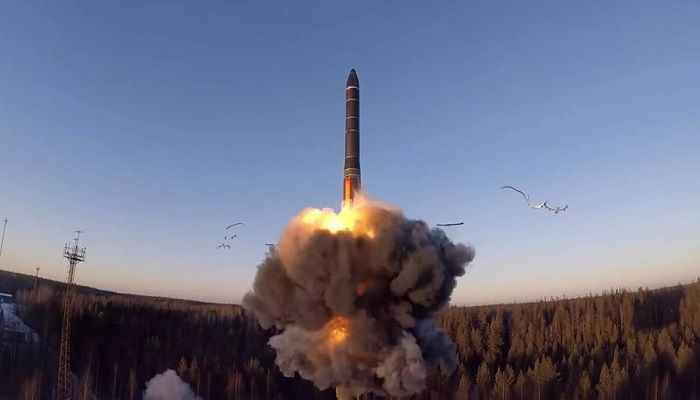Russia said on Wednesday that its troops carried out a mock nuclear missile strike in the western enclave of Kaliningrad during Moscow’s military operation against Ukraine. The news comes on the 70th day of Moscow’s military campaign against pro-Western countries that have killed thousands and displaced more than 13 million in Europe’s worst refugee crisis since World War II.
After sending troops to Ukraine in late February, Russian President Vladimir Putin made a barely veiled threat to deploy Russia’s tactical nuclear weapons. In a military exercise on Wednesday in the Baltic enclave between EU member Poland and Lithuania, Russia simulated “an electronic launch of a nuclear-capable Iskander mobile ballistic missile system,” the Russian Defence Ministry said in a statement. “
The statement said that the Russian military carried out single and multiple strikes against targets mimicking missile system launchers, airfields, protected infrastructure, military equipment, and enemy command posts.
The Defence Ministry added that military personnel manoeuvred to change positions after the “electronic” launch to avoid “possible retaliatory strikes”. Combat units also conducted “operations under radiation and chemical contamination”. The exercise involved more than 100 soldiers.
- Ashoka Buildcon JV Bags Rs 1,041-Crore BMC Flyover Project; Shares End 2.30% Higher
- WPIL Shares End 7.75% Higher on Order Win
- Biocon Launches Diabetes, Obesity Drug-Device in Netherlands; Shares Trade Flat
- Bharat Electronics Shares Trade Higher on Rs 776 Crore Orders
- Granules India Shares Slump Despite Securing EIR from USFDA
Russia put its nuclear forces on high alert shortly after Putin sent troops to Ukraine on February 24. The Kremlin chief has warned of “lightning” retaliation if the West intervenes directly in the Ukraine conflict. In recent days, Russian state television has tried to make the public prefer the use of nuclear weapons, observers say. “For two weeks, we have heard from television screens that nuclear silos should be opened,” Russian newspaper editor and Nobel Peace Prize laureate Dmitry Muratov said.
 Live
Live

